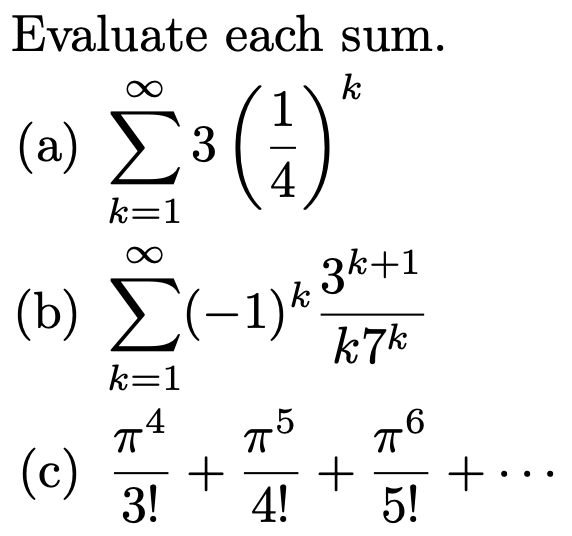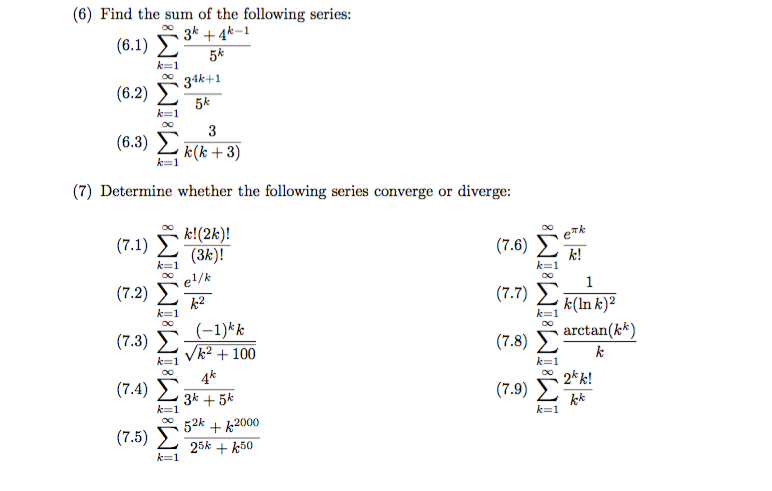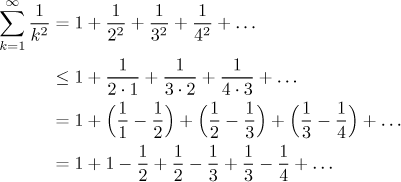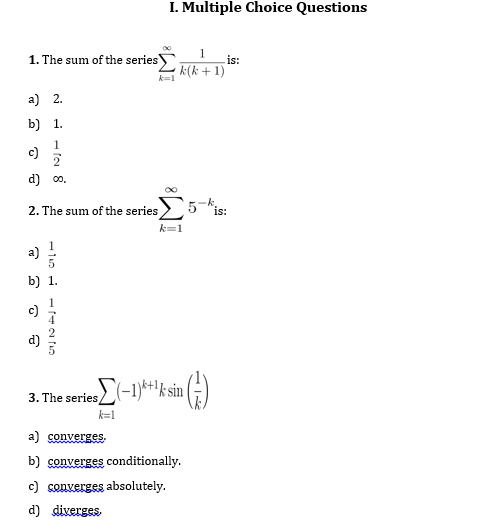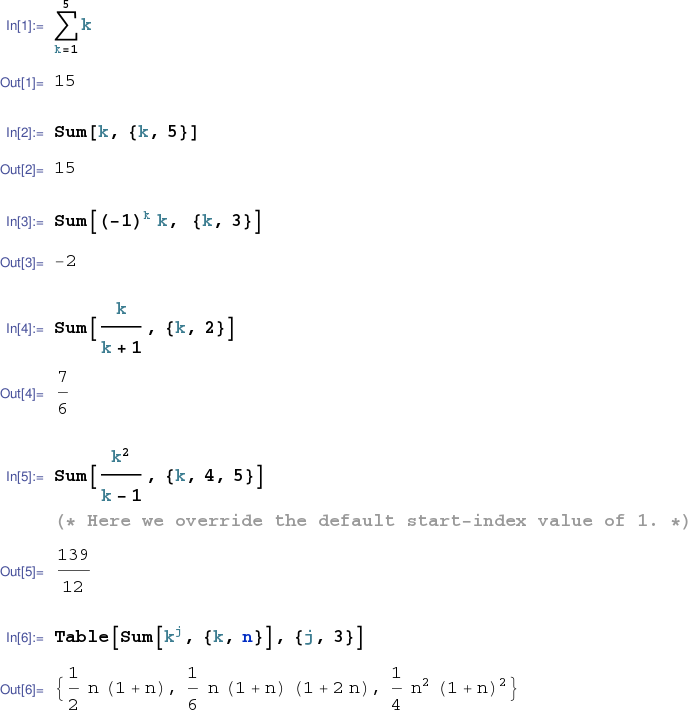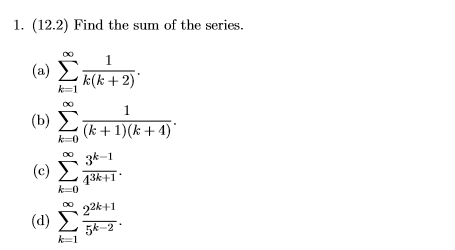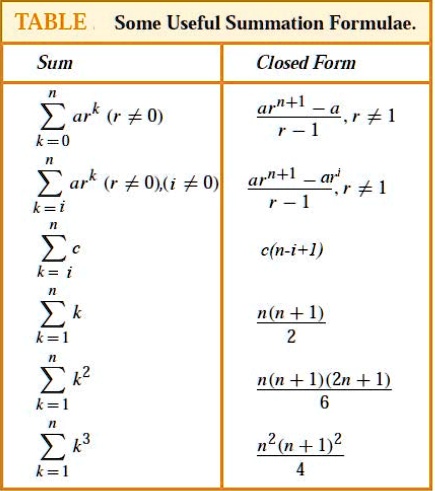
SOLVED: TABLE: Some Useful Summation Formulae. Sum Closed Form Σ (r + 0) 4r"+l r -1 Σr#1 k=0 Σ (r - 0)(i - 0) Σr"+[ a,r -1 r -1 Σ c(n-i+1) "u+)

proof verification - Proving that $\sum_{k=1}^{\infty}\frac{1}{k}$ diverges - Mathematics Stack Exchange
What is the value of the following series: [math] \sum_{k=1}^{\infty} \frac{ 1}{k(k+1) (k+2)}[/math]? - Quora

number theory - How prove this $\sum_{k=1}^{2^{n-1}}\sigma{(2^n-2k+1 )}\sigma{(2k-1)}=8^{n-1}$ - Mathematics Stack Exchange
The sum Σ k 1/2^k k ∈[k = 1, 20] is equal to - Sarthaks eConnect | Largest Online Education Community

calculus - First four terms of $ \sum_{k=1}^\infty \frac{(-1)^{k+1(2^k)}}{(2k - 1)!} $ - Mathematics Stack Exchange

